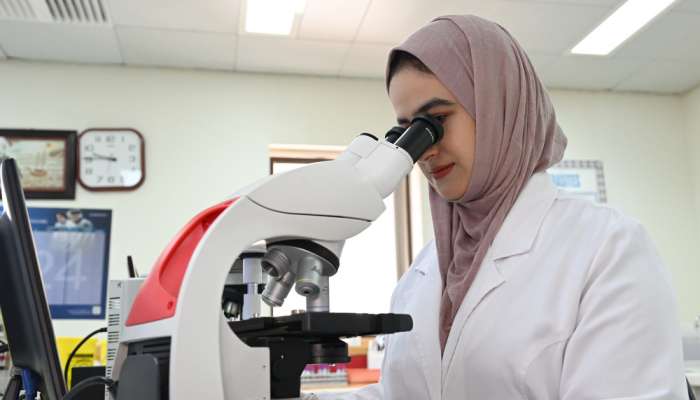
Muscat: The decision by the Council of Ministers, chaired by His Majesty Sultan Haitham bin Tarik, to launch the National Genome and Human Data Programme, "Omani Genome," marks a significant step towards enhancing the quality of healthcare in Oman.
This initiative aims to improve disease diagnosis accuracy and develop personalised treatments for patients.
Professor Khalid bin Humaid Al-Rasadi, Director of the Medical Research Centre at Sultan Qaboos University, highlighted the importance of genetic samples and genomic data as vital national security content.
The programme will contribute to establishing policies to secure data, along with ethical standards for collecting, analysing, and utilising this data while ensuring confidentiality and privacy.
He added that the programme will help create a national genomic database for the Omani population, promote genomic research, achieve national self-sufficiency in genomics and bioinformatics, and stimulate the knowledge economy in biotechnology and genomics.
It will also aid in the development of treatments and genetic industries.
The genetic and genomic database will improve healthcare for the Omani community by developing genetic screening programmes, including pre-marital, prenatal, and newborn screenings for rare genetic diseases, and focusing on common diseases such as cardiovascular diseases, diabetes, cancer, and lifestyle factors.
This comprehensive database will play a crucial role in early detection, prediction, and prevention of genetic diseases, guiding health planning, enhancing preventive healthcare, and reducing healthcare costs related to genetic disorders.
Regarding the expansion of research areas through this programme, Al-Rasadi noted that it will enrich research and innovation in rare and common genetic diseases, such as familial hypercholesterolemia, type 2 diabetes, breast cancer, and more.
These efforts will lead to the development of innovative diagnostics and treatments, enable experimental research and clinical trials, and establish Oman as a scientific reference in genomic research.
He emphasised the significant role that this data can play in developing personalised treatments and precision medicine, which relies on the understanding of social and behavioural data, blood test results, imaging, clinical health data, and genomic data. This integration will enhance the accuracy of diagnosing and treating genetic conditions.
Addressing ethical issues related to the collection and use of genomic data, Al-Rasadi explained that legislative and policy development based on local and international bioethical standards will regulate the collection, preservation, analysis, and utilisation of genomic data, safeguarding confidentiality, privacy, and individual and community rights.
Professor Khalid bin Humaid Al-Rasadi concluded by highlighting the potential benefits of the National Genome and Human Data Programme for individuals and society, including fostering community trust through transparency in handling genomic data, respecting individual privacy, encouraging participation in genetic surveys and research, and promoting healthy lifestyles based on genetic knowledge, such as appropriate diets and personalised exercise routines.